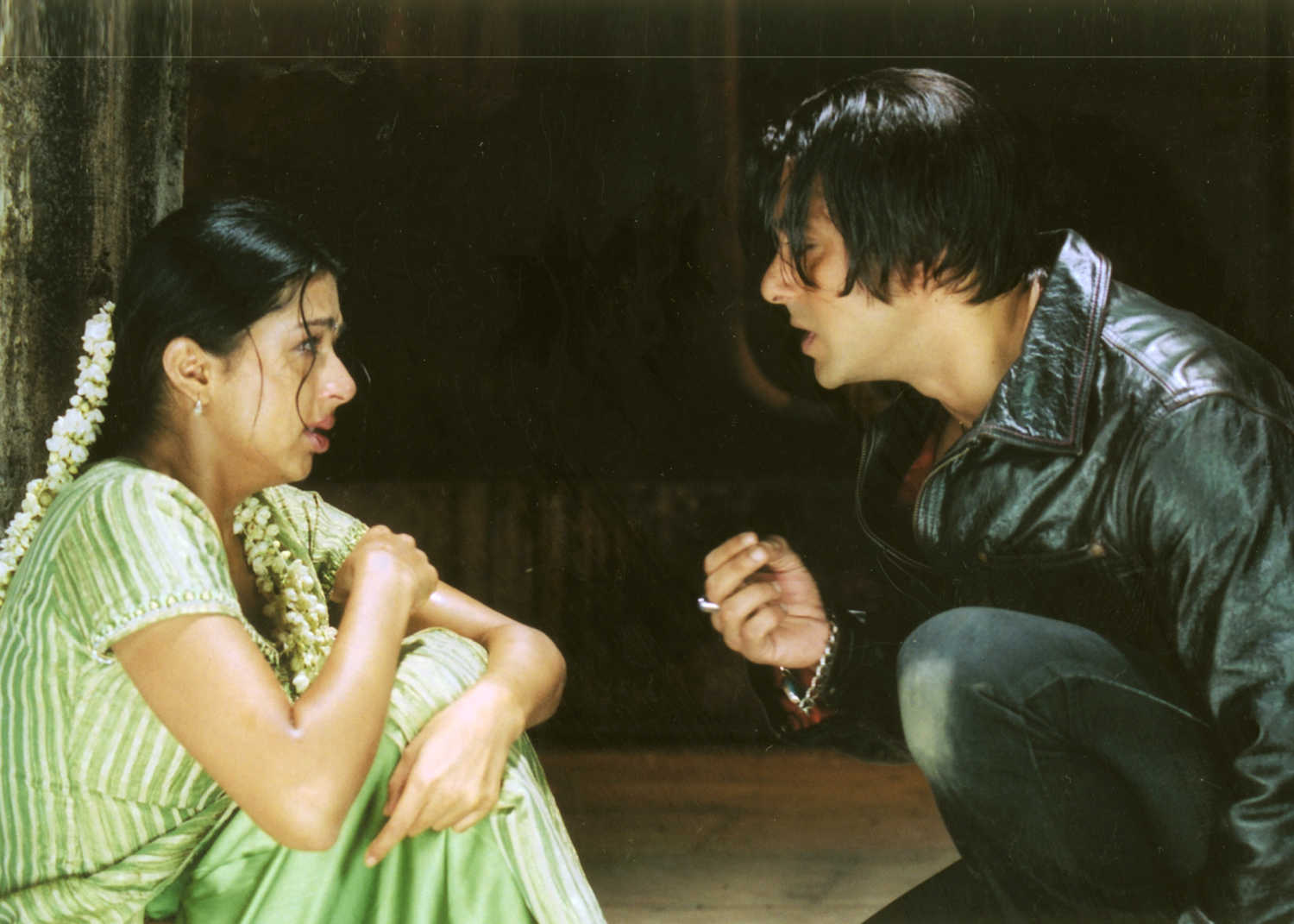A modern Romeo-Juliet adaptation, the film is remembered mainly for two reasons — its music and Khan's hairstyle.
15 years of Tere Naam: 4 things we regrettably learnt from Salman Khan, Bhumika Chawla
Mumbai - 15 Aug 2018 10:00 IST


Anita Paikat
Satish Kaushik's Tere Naam (2003), starring Salman Khan and Bhumika Chawla, earned around Rs24.5 crore worldwide. Though this number might not sound significant now, with every second film crossing Rs100 crore in India itself, 15 years ago it meant very good business.
A modern Romeo-Juliet adaptation, Tere Naam is today remembered mainly for two reasons — its music and Khan's hairstyle.
However, on the 15th anniversary of the film's release (it hit the theatres on 15 August 2003), let's take a closer look at the film, going beyond the compositions of Himesh Reshammiya and Sajid-Wajid, and, yes, the cringe-worthy locks that every other Bhai fanboy imitated.
The memorable tracks of singer, composer Himesh Reshammiya – Birthday special
1. Good-for-nothing is good too
Salman Khan plays Radhe (sort of a moniker used for the god Krishna). Though he passed out of college long back, Radhe keeps busy puppeteering college affairs, ragging freshmen, thrashing goons for the sake of friends and 'saving' women.
Radhe's violent, nearly fatal fights are mostly to save the weak from the oppressors. Similarly, the few moments he resorts to oppression and aggression are just Radhe's way of expressing love and affection.
So, don't mind if he is wasting his time and ours. Just remember that he is the most loyal and pure-hearted middle-aged man you will find on any campus.
2. Lovers' anthem — 'Ishq mein na ka matlab haan hota hai!'
Among the melodious tracks of the film, the 'O Jaana' song has a line that every jilted lover would believe to be true. 'Ishq mein na ka matlab han hota hai', which literally means 'in love, no also means yes'.
While Amitabh Bachchan's lawyer couldn't stress enough on the meaning of the word 'No' in Aniruddha Roy Chowdhury's Pink (2016), back in 2003 the word had no weight in matters of love.
Radhe's love for Nirjara (Chawla) is so strong and so deep that he sees no difference in yes and no. When she berates him for taking her 'huh!' for 'han!', he abducts her, yells at her, and even threatens to kill her. But please, do not be alarmed. He gives two very good reasons for his actions. One, he just wanted to talk to her in peace for two minutes and two, he cannot live without her.
While we are still recovering from what we just saw, there comes another shocker. Nirjara, in between sobs, apologizes for her actions! Again, she too has two reasons for this lapse in judgement. One, Radhe saved her elder sister from a brothel and two, he was good enough to not rape her after the 'abduction of love'.
3. A long love story but short-lived romance
While most of the film's runtime (132 minutes) is spent on introducing the goodness of Radhe and the naivety (read: borderline stupidity) of Nirjara, their romance lasts a little over four minutes. The romance begins with the 'Odhani' song which ends with a near-fatal attack on Radhe, which in turn lands him in the place he should have been all this while — a mental asylum.
4. Bhabhis are cool, bhaiyas not so much
Sachin Khedekar played Radhe's older brother who runs the family business, and Savita Prabhune played the sister-in-law who runs the house. While the former is like the idealistic father, constantly nagging Radhe about his good-for-nothing ways, the latter is like the ideal mother, not only saving Radhe from the nagging, but also encouraging his wayward attitude.
Giving the makers the benefit of doubt, this film was, perhaps, an attempt to salvage the image of sisters-in-law that had taken a vampish turn in 1990s Hindi cinema.
While Bhai fans might still rave about the film, it is comforting that Tere Naam was based on fiction and had fictitious characters. For the sake of 'achchhe din', it is best not to have the likes of quasi-hero Radhes romancing outrageously naive Nirjaras.





